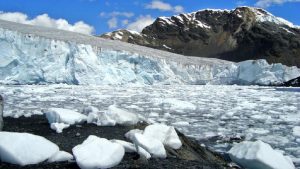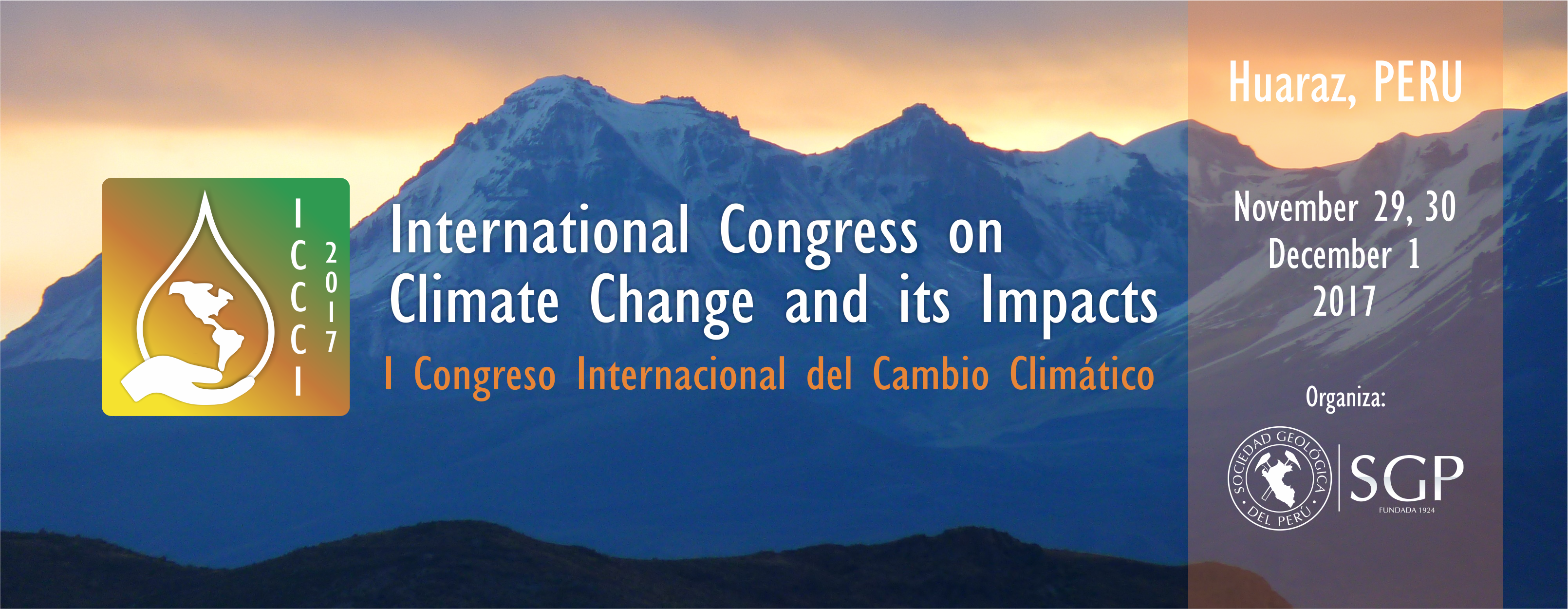05-06-17 Interview with Dr. Macharé in Radio Capital about Climate Change in Peru
The Climate Change Congress will bring together global and national specialists to discuss the multiple aspects of the climate issue.
In the framework of the First International Congress on Climate Change, organized by the Geological Society of Peru (SGP), to be held from November 29th to December first in the city of Huaraz, it is pointed out that Peru is one of the most vulnerable countries at Climate Change. Its effects can already be seen in the melting of glaciers, the advance of deserts, the collapse of groundwater levels, and the increase of temperatures in inter-Andean valleys, among others.
For the president of this event, Dr. José Macharé, Peru will feel more strongly the effects of climate change. This is due to its location in a tropical zone and because it shelters a great variety of microclimates and ecosystems. In the case of the jungle, there are references of critical forecasts that indicate that the Peruvian Amazon would enter a process of desiccation until becoming a “savannah” with unimaginable social and economic effects during the present century.
Climate Change and our country
Many climatic changes have occurred throughout history and have occurred in different magnitudes without human intervention. However, reports from scientists around the world have pointed out that the effects of current climate change distinguish the human intervention footprint that is contributing to global warming. This is generating serious ecological, social and economic effects.
“Scientific evidence has shown that Earth’s climate is changing rapidly and its impacts affect the entire planet. However, the mechanisms and processes that generate these climate changes, as well as the future perspectives of the planet, are still points of debate, “said the expert.
Consequences
Part of that debate are the effects that climate change could have on our country. Some prognoses point out that, if stressed, the very strong and extreme events of the Niño Phenomenon could be more frequent and intense, which will lead to a substantial increase in epidemics such as the current dengue epidemic.
Likewise, in the sierra the temperature will increase accelerating even more the melting of the glaciers and thus putting in danger the availability of the water resource throughout the year; In the case of the jungle, the more extreme forecasts indicate a tendency that the lands will be devastated by fires reducing the Amazon forest, being able, in 50 years, to become a savannah.

Taken from: http://www.capital.com.pe/actualidad/video-dia-del-medio-ambiente-antes-de-fin-de-siglo-la-amazonia-podria-desaparecer-noticia-1055491
05-06-17 Interview with Dr. Macharé in RPP Noticias
Dr. José Macharé talked to Tatiana Alemán about Climate Change in Peru, regarding the International Environment Day.
[huge_it_slider id=”4″]
05-06-17 Interview with Dr. Macharé in Canal N
Dr. Macharé talked about the International Environment Day and Climate Change in Canal N.
[huge_it_slider id=”5″]
05-06-17 Interview with Dr. Macharé in RPP Noticias
Dr. Macharé, president of ICCCI 2017, talked in RPP Noticias with journalist Milagros Leiva.
